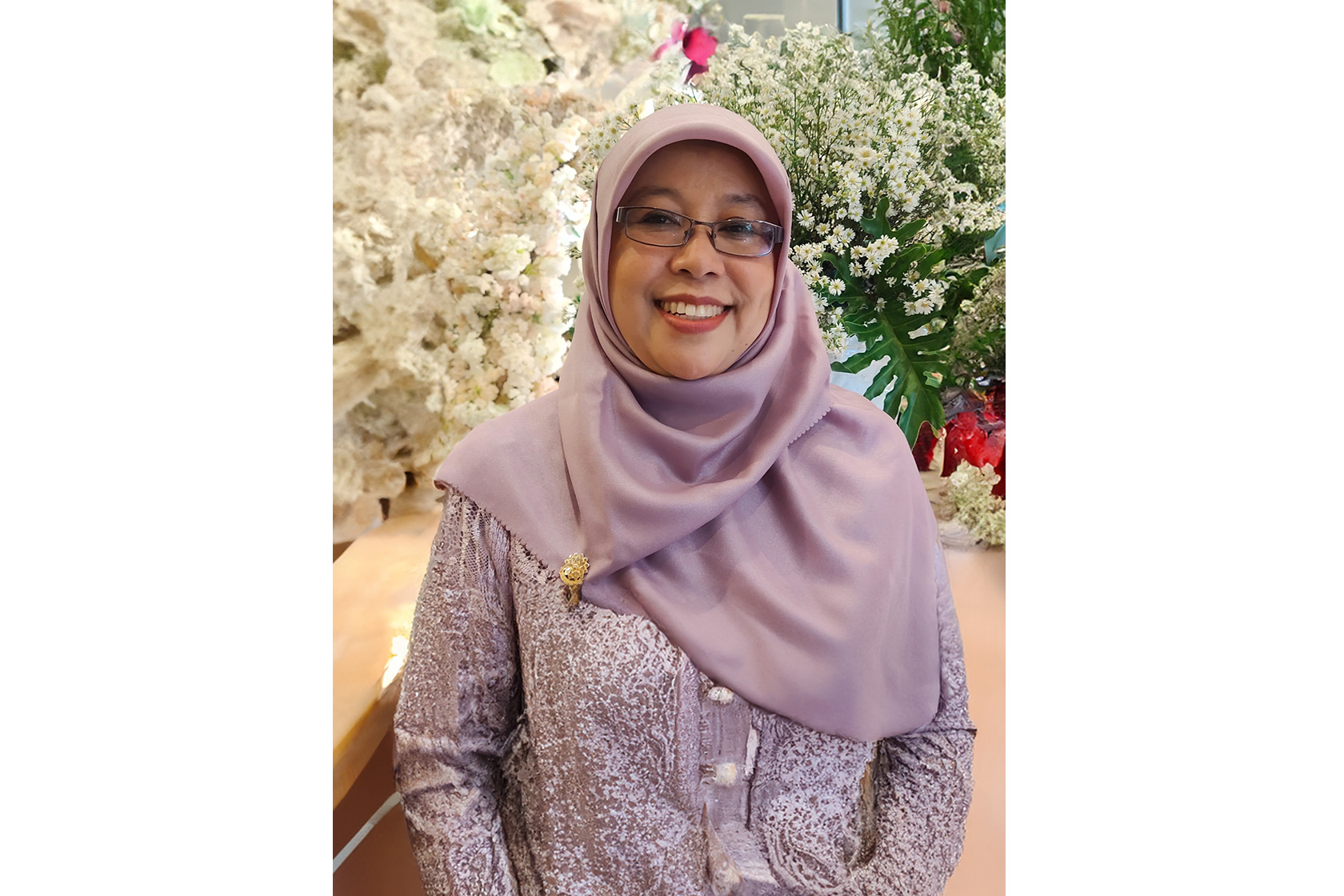Professor Nina Nurmila is a distinguished Islamic jurisprudence scholar in Indonesia and across Asia, known for her advocacy of gender equality and the advancement of women-friendly interpretations of religious teachings. Her journey toward gender enlightenment is a serendipitous tale, offering a hopeful example of transformation from a conservative upbringing to progressive leadership.
The journey dated back in the mid-1990s when Nina began teaching at her alma mater, the State Islamic University (UIN) in Bandung, West Java. As part of her tenure, the Ministry of Religious Affairs facilitated her pursuit of a masters degree abroad, yet Nina had not yet determined her preferred area of study.
“I then became aware of women’s studies and thought, well, this seems easy and interesting. So, I applied and received an Australia Awards Scholarship to study at Murdoch University in Australia, and studied gender and development studies,” she said in a recent video interview.
The journey proved to be anything but straightforward. Nina reflected on this period as "confusing and at times painful," acknowledging the substantial process of unlearning she underwent. "It was an eye-opening experience," she remarked, highlighting the realisation of entrenched patriarchal systems, the marginalisation of women, and the complexities of religious politics. "The reality wasn't as rosy as I had initially perceived," she concluded.
Continuing her academic journey in gender studies, Nina achieved a PhD in Gender and Islamic Studies at the University of Melbourne. She then embarked on a series of post-doctoral fellowships at esteemed institutions in Sydney, California, and Amsterdam. Her scholarly contributions include the publication of Women, Islam and Everyday Life: Renegotiating Polygamy in Indonesia (London; New York: Routledge, 2009 & 2011), along with the presentation of numerous papers at international conferences and the facilitation of training sessions in countries such as the Philippines, Malaysia, and Afghanistan.
Returning to Indonesia, Nina assumed the role of commissioner at the National Commission on Violence Against Women (Komnas Perempuan) and actively participated in the Indonesian Women Ulema Congress (KUPI). Currently, she serves as the Dean of the Faculty of Education at the Indonesian International Islamic University (UIII) in Depok, West Java. Her research focuses primarily on gender and Islam in Muslim societies, with recent endeavours aimed at preventing child marriage through the promotion of education for girls.
Challenges in Religious Discourse: Navigating Literalism
Gender remains a delicate issue in Indonesia, where men continue to dominate public discourse and knowledge production. As a Muslim feminist, Nina grapples with the daunting task of harmonising religious convictions with progressive ideals amidst widespread societal resistance and misconceptions.
"The Quran, to be practised in daily life, is subject to human interpretation, and the multitude of interpretations, largely shaped by men, often diminishes and subjugates women," she observed. "Regrettably, this prevailing interpretation permeates Islamic boarding schools (pesantren), leading many Muslims to perceive it as the sole truth."
Nina highlighted the tendency for individuals to adopt literal interpretations and selectively read certain verses, such as those pertaining to polygamy.
"If one merely examines a single verse, it might appear as though the Quran mandates up to four wives. Yet, a comprehensive reading reveals a preference for monogamy—indicating that marrying one is preferable for safeguarding oneself," she explained.
"I firmly believe in the justice of Allah. Therefore, if injustice persists, it suggests flaws in both the methodology employed to understand the Quran and in how it is interpreted. It is imperative that we advocate for interpretations and perspectives that are equitable and empowering for women," Nina asserted.
She acknowledges that the promotion of critical thinking within a religious context is a relatively recent development, one that poses a threat to entrenched establishments. The opposition, she notes, is formidable, emanating not only from men but also from women who have internalised patriarchal ideologies.
"Even students have the audacity to challenge their lecturers," Nina observed. "I've found it more receptive to train judges on gender issues as they tend to be more attuned to the realities in the field. However, it's a process of understanding. I, too, was once not well-versed in gender studies. It takes time."
Navigating through resistance from those averse to diverse perspectives is a Herculean task, yet Nina finds solace in the promising developments unfolding in the country, particularly the burgeoning influence of gender studies.
"When we first organised KUPI in 2017, participation was around 500. Five years later, the number more than doubled," she remarked. "There's a noticeable uptick in the production of knowledge, evident in the proliferation of gender study centres and academic journals. Moreover, awareness of gender-related issues among students and scholars has surged. While still in its infancy, it's a promising trend."
Bridging the Gap: Access to Education and Resources
Nina underscored the critical need for accessible gender training and resources, especially for marginalised communities, emphasising the importance of amplifying their voices. She advocated for increased access to religious study groups for women and urged media and educational institutions to take a more proactive role in promoting gender equality.
Reflecting on her impactful experiences studying gender studies in Australia, Nina contrasted the educational systems and opportunities between Indonesia and Australia.
"Australia feels like a second home to me," she remarked fondly. "I admire the country's commitment to social justice, evidenced by policies like taxing the rich and defending marginalised populations. The disparity between the rich and the poor is less pronounced, particularly in terms of education and opportunities."
As a university lecturer, Nina is a staunch advocate for the rights of her colleagues and the enhancement of facilities for them. While acknowledging improvements, she stressed the need for further enhancements.
"In Indonesia, lecturers are burdened with excessive administrative tasks," she lamented. "In Australia, lecturers have the freedom to be more productive in their research, thanks to excellent facilities and unlimited access to data. I hope the system here can emulate the accommodations afforded to lecturers in Australia."


 From Ministry Mandates to Feminist Realisations: A Journey of Professor Nina Nurmila’s Gender Awakening
From Ministry Mandates to Feminist Realisations: A Journey of Professor Nina Nurmila’s Gender Awakening
